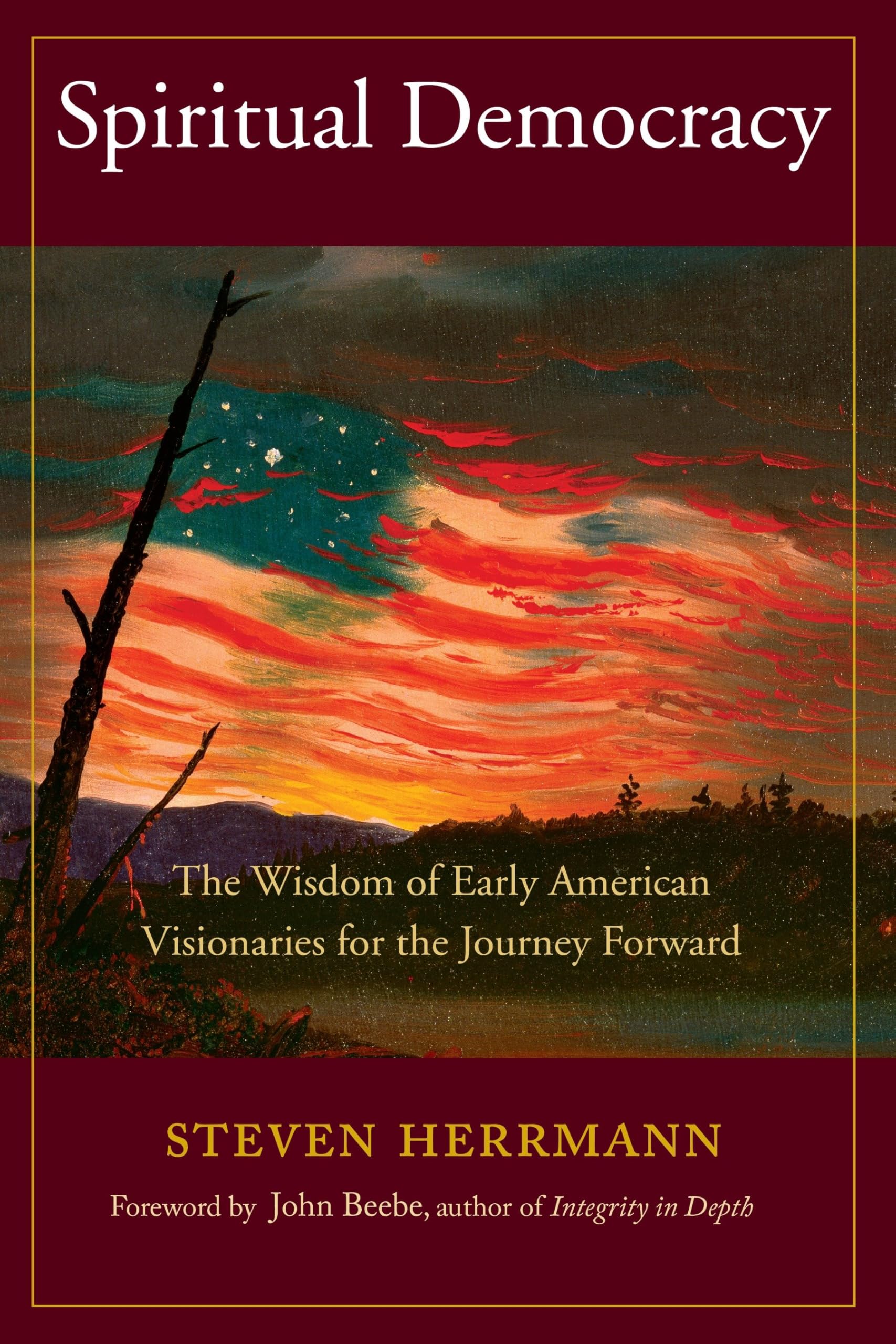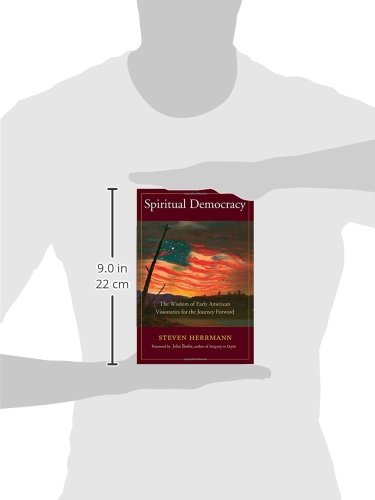Spiritual Democracy is an idea whose time has come. It is uniquely American, founded upon the Iroquois myth of the Peacemaker, and it found its most eloquent voice in early American poetry. It exists in three stages: 1) political, 2) economic, and 3) religious. Spiritual Democracy is linked to the cosmic science of nineteenth century naturalist Alexander von Humboldt, whose work Walt Whitman, Herman Melville, and Emily Dickinson were all aware of. It is found in the pragmatism of William James and the works of C.G. Jung. Spiritual Democracy is an ideal that involves making the shadow conscious; it is not a condition of peace alone. Spiritual Democracy advocates responsibly living out one’s vocation as a path of sacred action. Today we need to understand the foundation stone of Spiritual Democracy, which is central to the mythos of America, to combat the toxic political climate in which we are living. Exploring what the author calls the “shaman-poets”–Walt Whitman, Herman Melville, and Emily Dickinson–this book demonstrates how far ahead of their times these writers were in forecasting developments of our current time. It was Whitman who first wrote of “Spiritual Democracy” as a vision of transformation and global equality. Steven Herrmann delves deep into the visionary expressions of this idea of Spiritual Democracy–“the realization of the oneness of humanity with the universe and all its forces”–in these early American writers, showing the influence the groundbreaking work of the geologist and thinker Alexander Von Humboldt had on Whitman and others. Writing that every member of the global community regardless of color, gender, or sexual orientation can realize these freedoms, the author explores how one can tap into the vitalizing source of equalizing, vocational energy to bring a sense of purpose and peace. Although the book shines as a work of literary criticism, the author’s insights as a Jungian psychotherapist take the reader ever deeper into the creative impulses of Whitman, Melville, Dickinson, and other poets in their crafting of the seminal notion of Spiritual Democracy. In addition, Herrmann offers practical methodologies for personal and global transformation in the section, “Ten Ways to Practice Spiritual Democracy.” Table of Contents Visions of Spiritual Democracy – Introduction 1. Cosmos 2. Spiritual Democracy as a Science of God 3. From Humboldt to Jung 4. Jung on Spiritual Democracy 5. Healing the National Complex 6. Whitman’s “New Bible”: The Foundation of a Religious Vision 7. Walt Whitman’s Global Vision 8. The Bi-Erotic as Transcendent Sexuality 9. Shamanism and Spiritual Democracy: A Post-Humboldtian Notion of the Cosmos 10. Whitman as a Preserver of the Psychic Integrity of the Community 11. Moby Dick: The Evolution of a New Myth for our Times 12. Herman Melville: The Quest for Yillah 13. Towards a Hypothesis of the Bi-erotic 14. Moby Dick and the Trickster 15. The Marriage of Sames: “A Bosom Friend” 16. Moby Dick: The Characters Behind the Names 17. The Fall of the Dictatorships as Portrayed in Moby Dick 18. Metamorphosis of the Gods 19. The Re-emergence of the Feminine 20. Afterward: A Bi-Erotic Model for The Way Forward a) Ten Ways to Practice Spiritual Democracy
Spiritual Democracy: The Wisdom of Early American Visionaries for the Journey Forward (Sacred Activism)
$16.17
This book provides a deep analysis of American literature and philosophy, enhancing studies in history and language arts.
Additional information
| Weight | 0.68 lbs |
|---|---|
| Dimensions | 15.3 × 2.5 × 22.9 in |







Reviews
There are no reviews yet.